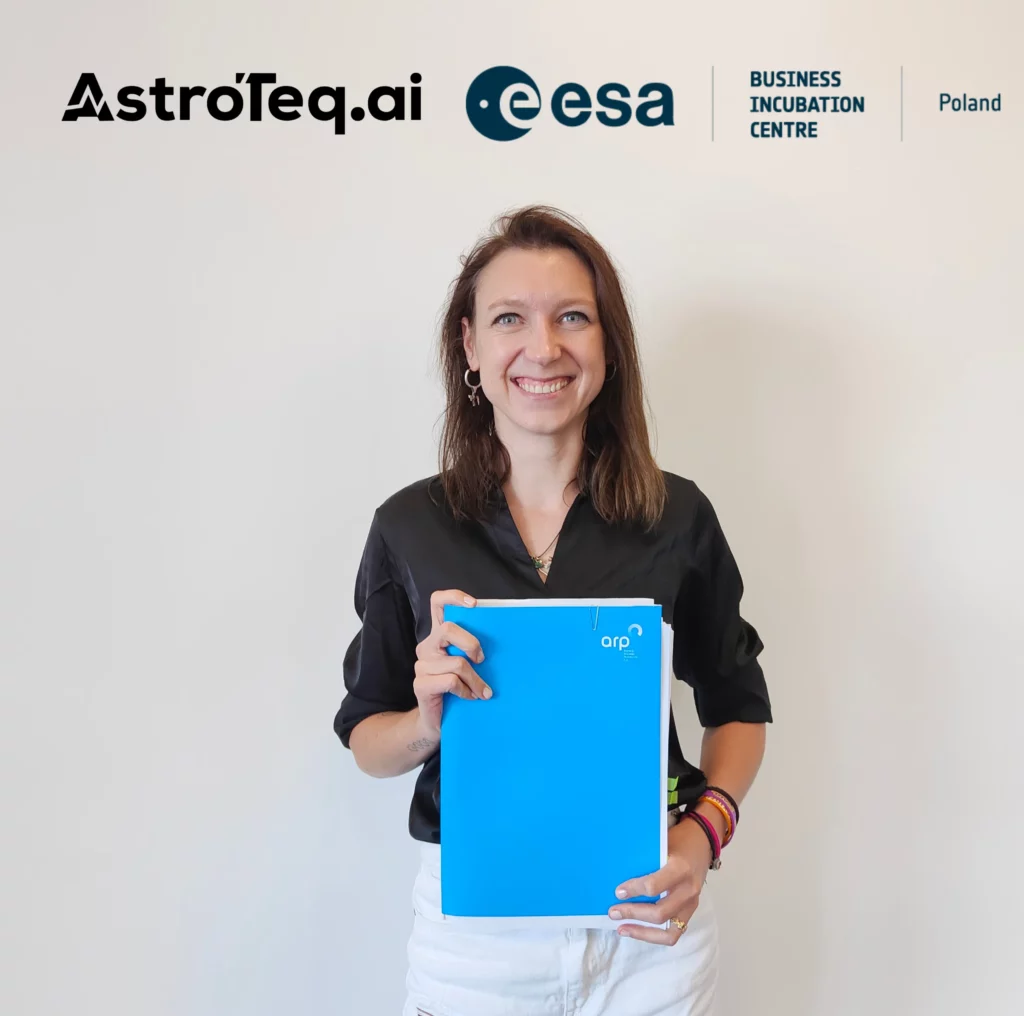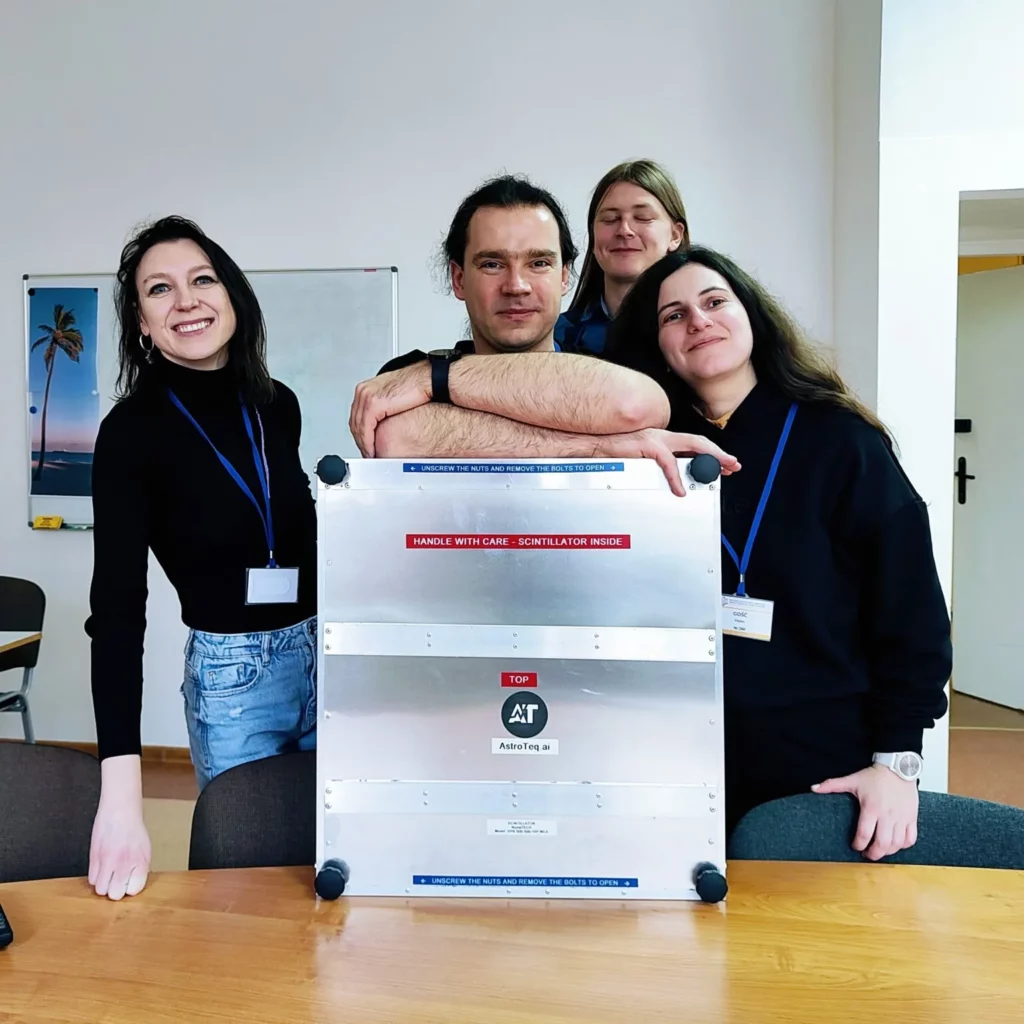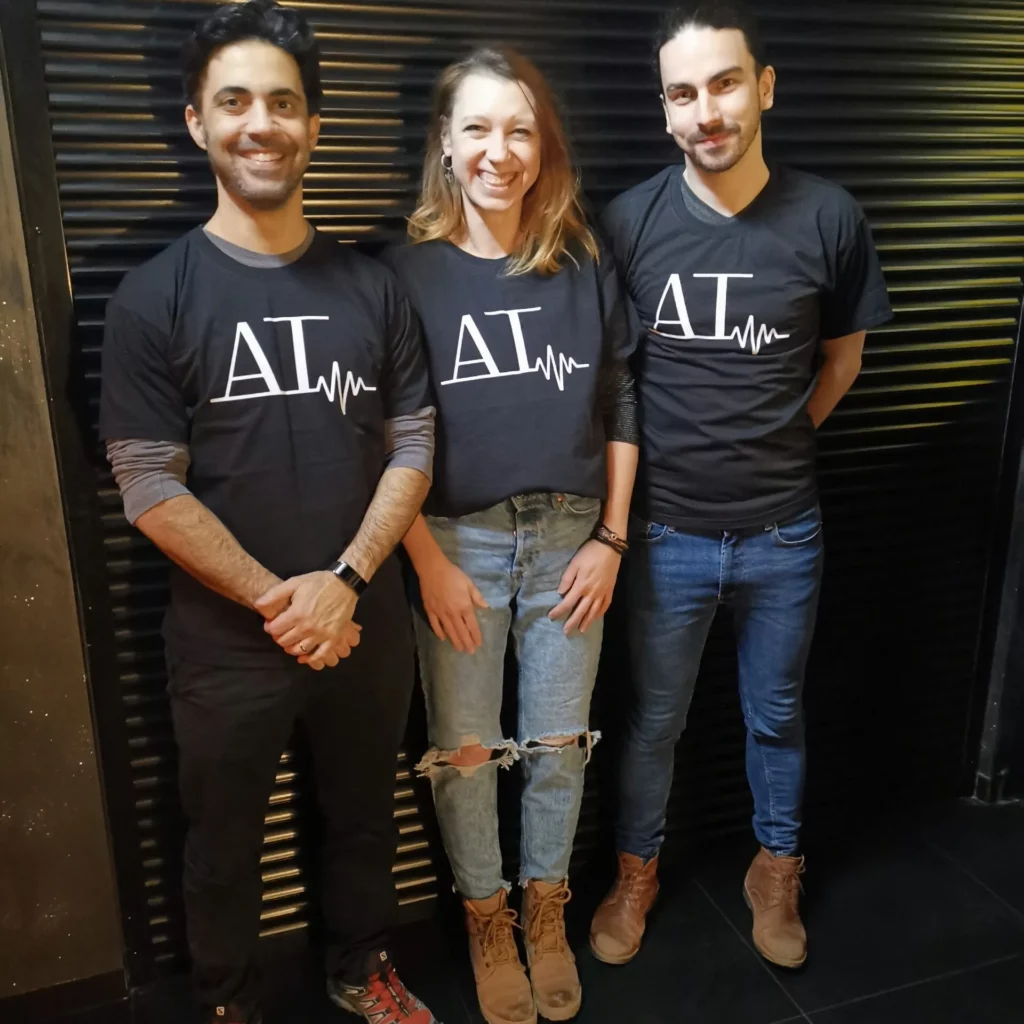A journey of innovation and space-driven solutions
A journey of innovation and space-driven solutions
At ESA BIC Poland, our mission is to support innovative startups that are related to space technology. We are excited to spotlight one of our amazing teams: Astroteq.ai, which recently completed our incubation program. Over the past 12 months, in the Rzeszow Consortium of the ESA BIC Poland, under the guidance of Rzeszów Regional Development Agency (RARR), this dynamic team has made impressive progress in integrating satellite data with their cosmic radiation-based system, achieving key milestones and securing strategic partnerships. Here’s a closer look at their journey and what’s next for this innovative startup.
A Mission Grounded in Space Innovation
Astroteq.ai’s core innovation utilizes cosmic radiation as a novel method combined with multichannel AI-based detection and forecasting for detecting seismic activity. When joining ESA BIC Poland, their mission was to enhance their earthquake prediction capabilities by integrating satellite data, particularly Synthetic Aperture Radar (SAR) and thermal satellite imagery.
Throughout the incubation, they aimed to leverage remote sensing and machine learning to improve earthquake forecasts, with a focus on making a real-world impact, especially in collaboration with regions prone to seismic activity.

Key Achievements During the Incubation Period
Funding Success
Astroteq.ai raised a total of 640k EUR from a variety of sources to fuel their growth. This includes 100 k EUR from business angel through a Convertible Note, 80 k EUR from Israel Aerospace Industries Ltd., and 50 k EUR each from EmpoWoman and SynergistEIC. The funds were instrumental in advancing their product development, scaling operations, and expanding their team. Additionally, Astroteq.ai secured its first revenue through the sale of cosmic ray detectors to the Arecibo Observatory in Puerto Rico and a collaboration with the Israel Aerospace Industries (IAI).
Partnerships and Collaborations
Throughout the incubation, Astroteq.ai formed valuable partnerships that helped them access critical satellite data and advanced technical expertise. Collaborations with Planet and ICEYE provided essential satellite data packages, partnership with Institute of Geodesy and Cartography (IGiK) focused on knowledge transfer, enhancing their technical expertise, while partnerships with Rzeszow University of Technology, and the National Center for Nuclear Research (NCBJ) supported testing and development of their systems.
Product Development Milestones
Astroteq.ai made significant progress in developing their earthquake prediction system by integrating Earth Observation satellite data. Key milestones included identifying relevant satellites and building a database to track satellite data metadata, analyzing SAR satellite images and compared them with their cosmic ray data analysis, and implementing statistical tools for thermal (LST) data analysis.
Astroteq.ai developed predictive models using AI techniques such as CNNs, RNNs, and GNNs. The integration of SAR data significantly improved model performance, particularly in predicting stronger earthquakes. Additionally, thermal data analysis revealed potential temperature anomalies before seismic events, contributing to a more comprehensive earthquake prediction framework.

Market Expansion
During incubation, Astroteq.ai expanded their market reach through strategic partnerships and pilot projects. Collaborations with ESA and ESA BIC opened access to key satellite data providers like Planet, ICEYE, and Constellr.
Partnerships with POLSA helped them gain traction in the space industry, while IAI and Starburst Ltd. facilitated entry into the Israeli market. Astroteq.ai signed a revenue-share contract with ELTA Systems to integrate their earthquake forecasting system with SAR data. Collaborations with CREDO provided access to cosmic ray data, and Deutsche Telekom supported IoT connectivity. They also initiated pilots with the National Society for Earthquake Technology and the Nepal Centre for Disaster Management. A partnership with Korsa Brazil will expand their market in Latin America, allowing for the sale of their system. A reseller agreement was signed with IAI with the focus on selling their solution to governments around the world.
What’s Next for Astroteq.ai
After completing their incubation at ESA BIC Poland, Astroteq.ai’s primary focus will be scaling their earthquake prediction system on a global level. Their next milestones include expanding commercial pilots in high-seismic-risk regions, such as Nepal and Brazil, with plans to convert these pilots into long-term, revenue-generating contracts. Astroteq.ai will continue integrating more satellite data sources, including additional SAR, optical, and thermal sensors, to further enhance the accuracy of their predictive models.
Another key priority will be advancing their AI algorithms by leveraging larger datasets and refining machine learning techniques to improve earthquake forecast precision. Astroteq.ai also plans to strengthen partnerships, particularly with ELTA Systems and other global leaders in space and satellite technology, while seeking new collaborations in emerging markets.
On the business development front, Astroteq.ai aims to establish more revenue-sharing agreements with industry partners, enabling broader distribution of their technology across sectors such as insurance and disaster management. They are also working towards obtaining relevant certifications and patents to safeguard their innovations, solidifying their position as leaders in the earthquake forecasting field. Lastly, they plan to pursue new funding rounds to support growth, enhance product development, and expand their team.
A Final Word
It has been an honor to support Astroteq.ai throughout this phase of their journey. They exemplify the kind of innovation, resilience, and passion that our incubator is all about. We’re excited to watch their continued success and evolution as they build on the strong foundation laid during their time at ESA BIC Poland.



